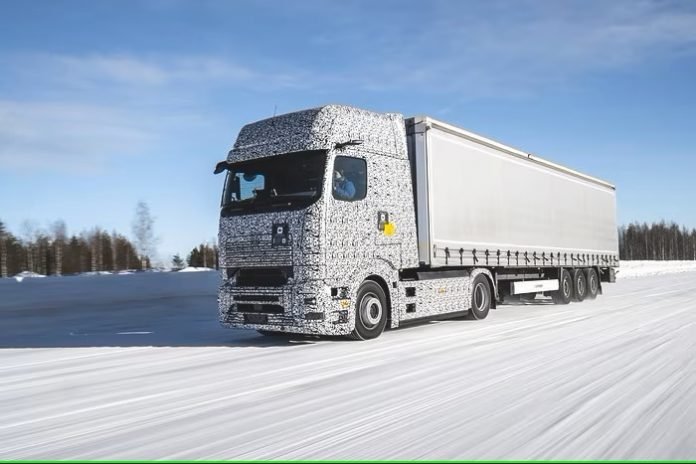Mercedes-Benz Trucks development and test engineers tested the operational readiness of the eActros LongHaul and eActros 300 as a tractor unit under extreme conditions at temperatures down to minus 25 degrees Celsius. Haulage companies are placing the same demands on battery-electric trucks as on their counterparts with conventional diesel engines. Even in difficult weather conditions, such as cold, ice and snow, the vehicles must reliably do their job. Against this background, this year’s Mercedes-Benz Truck winter tests in Rovaniemi, Finland, once again proved to be important endurance tests.
Under extreme climatic conditions, such as on snowy and icy roadways, harsh winds and temperatures down to minus 25 degrees, the development and test team tested the individual models in order to derive possible measures for further optimization. Dr. Christof Weber, Head of Global Testing Mercedes-Benz Trucks: “We are very satisfied with our test results. The tests of the batteries and electric drivetrain properties at extreme temperatures or of the vehicle’s driving properties on slick, icy roads show: Even in very wintry conditions, our battery-powered trucks are fully operational.”
The winter test also included numerous tests on driving and braking properties on surfaces with different levels of grip as well as the impact of slush, for example, on the effectiveness of the sensors of driver assistance systems. Also tested was how the Trailer Stability Assistant can reduce the risk of tractor-trailers skidding during cornering or evasive maneuvers on winter roads and how the MirrorCam handles different contrast conditions on ice and snow. The electric truck is based on the same technology as the eActros 300/400. Three battery packs, each with 112 kWh of installed battery capacity, enable a range of up to 220 kilometers on a single battery charge. Series production is scheduled to start in the second half of 2023.







